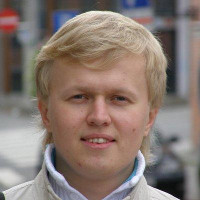Introduction and Scope
Following the positive feedback and great interest last year, we are delighted to announce the 2nd International Workshop on Big Data Analytic for Cybercrime Investigation and Prevention, co-located with IEEE Big Data 2018 conference in Seattle, USA on 10-13 December, 2018.

The big data paradigm has become an inevitable aspect of today's digital forensics investigations. Acquiring a forensic copy of seized data mediums already takes several hours due to the increasing storage size. In addition are several other time-consuming laboratory analysis steps required, such as evidence identification, corresponding data preprocessing, analysis, linkage, and final reporting. These steps have to be repeated for every physical device examined in the criminal case. Conventional digital forensics data preprocessing and analysis methods struggle when handling the contemporary variety, variability, volume and velocity of case data. Thus, proactive approaches have to be developed and integrated in daily law enforcement operations; for timely detection and prevention of the illegal activities in a data-intensive environments. Thus, there is a need for advanced big data analytics to aid in cyber crime investigations, which requires novel approaches for automated analysis. This workshop is organized to bring together recent development in big data analysis to aid in current challenges in cybercrime investigations.
Research Topics of Interest
The topics of the workshop are as following, but not limited to:
Algorithm areas
- Machine Learning-aided analysis
- Improvements of existing methods
- Digital Forensics data simulation
- New data formats and taxonomies
- Secure collaborative platforms
- Distributed storage and processing
Important dates
Nov 2, 2018 (extended from Oct 10, 2018): Due date for full workshop paper submissions
Nov 14, 2018 (extended from Nov 1, 2018): Notification of paper acceptance to authors
Nov 20, 2018 (extended from Nov 15, 2018): Latest due date for camera-ready of accepted papers
Dec 10-13, 2018: Workshop
Program Chairs
-

Andrii Shalaginov
Postdoctoral Researcher in Digital Forensics, andrii.shalaginov@ntnu.no
-

Katrin Franke
Professor in Computer Science, katrin.franke@ntnu.no
-

Jan William Johnson
PhD Research Fellow in Information Security, jan.w.johnson@ntnu.no
Technical Program Committee
Olaf M. Maennel (Tallinn University of Technology)
Asif Iqbal (KTH Royal Institute of Technology)
Bojan Kolosnjaji (Technical University of Munich)
Martin Boldt (Blekinge Institute of Technology)
Hanno Langweg (Konstanz University of Applied Sciences)
Pierre Lison (Norwegian Computing Centre)
Emiliano Casalicchio (Blekinge Institute of Technology)
Dmitry Kangin (University of Exeter)
Ali Dehghantanha (University of Guelph)
Bing Zhou (Sam Houston State University)
Vasileios Mavroeidis (University of Oslo)
Sreyasee Das Bhattacharjee (University of North Carolina at Charlotte)
Shih-Chieh Su (Qualcomm Inc)
Benjamin Flesch (Copenhagen Business School)
Jan-Jaap Oerlemans (Universitet Leiden)
Peter Xenopoulos (New York University)
Paper Submission
The authors are invited to submit: full-length papers (up to 10 page IEEE 2-column format), short papers (up to 6 page IEEE 2-column format) or abstract papers (up to 3 page IEEE 2-column format) through the online submission system.
Papers should be formatted to IEEE Computer Society Proceedings Manuscript Formatting Guidelines (see link to "formatting instructions" below).
Formatting Instructions and Templates
Publication
The authors of accepted papers must guarantee their presence at the conference for the papers to be published in the conference proceedings. At least one author of each accepted paper must register for the conference in order to include the paper in the proceedings.
Best Papers
Selected papers are nominated for submission to “Special Issue on Big Data Analytic for Cyber Crime Investigation and Prevention”, journal "Future Generation Computer Systems". Extended papers should have at least 60% of new material and will be sent through a review process to ensure the quality of contributions.